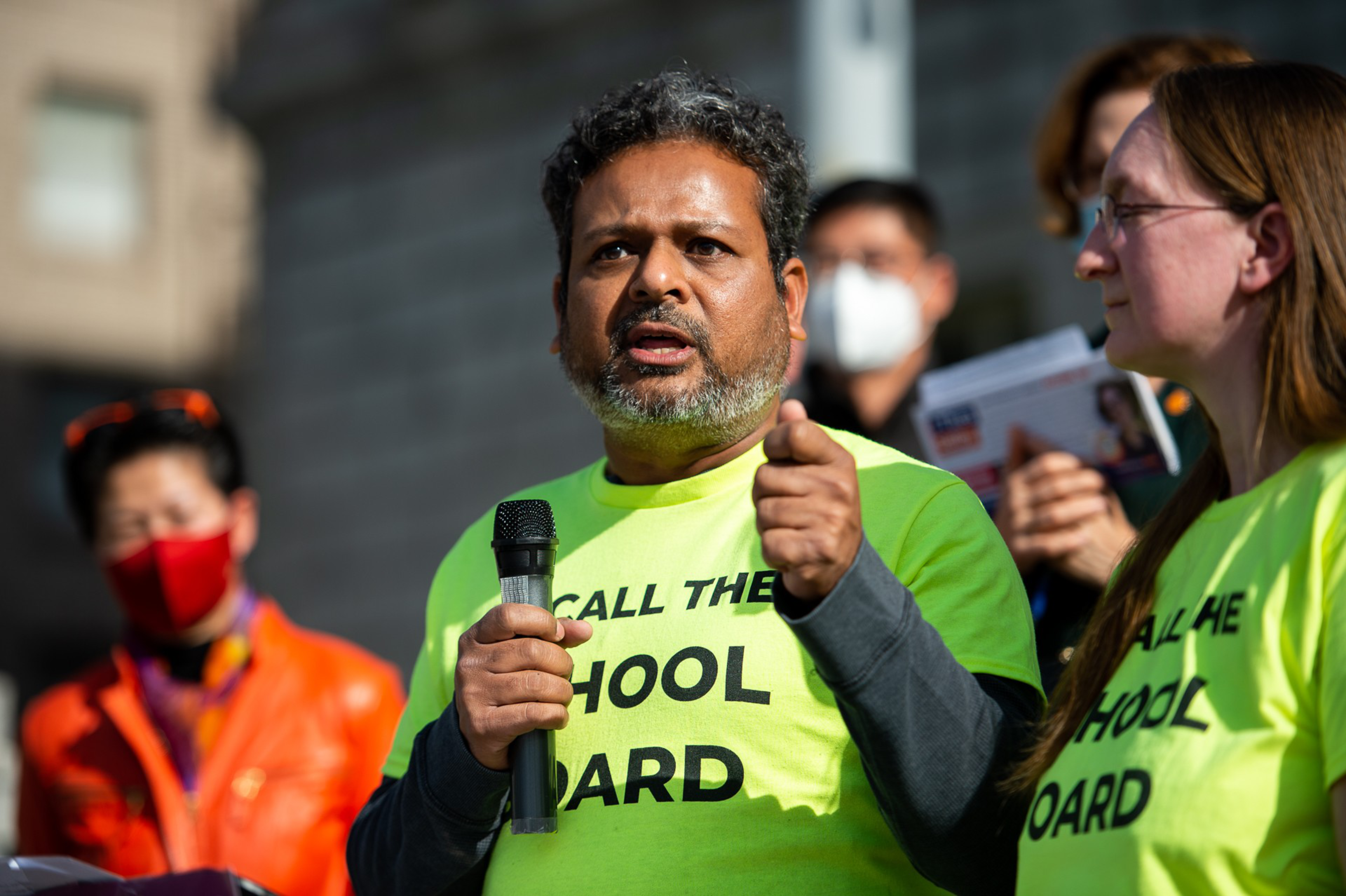Note: This story was produced as part of a partnership between KQED and The San Francisco Standard.
Driven by a string of controversies and frustrations surrounding the San Francisco Board of Education, a record number of San Francisco green card holders, visa holders, refugees and undocumented immigrants have taken advantage of a San Francisco law allowing non-citizens parents to vote in the Feb. 15 school board recall election.
“For someone like me to get involved in something like this, that shows how terrible the situation is,” said Siva Raj, an immigrant from India who is here on a work visa as he awaits permanent residency.
Raj is one of 74 non-citizen residents of San Francisco to have filed to participate in the upcoming recall election. While that’s still a relatively small number, it’s more than the total of new voters who registered for the school board elections in 2018 (65) and 2020 (36), the first two times noncitizens with children under 19-year-old could vote after the passage of a 2016 charter amendment, according to the Department of Elections.

At the end of 2020, Raj moved to San Francisco with his kids from the East Bay and soon thereafter he and another parent launched a school board recall campaign that became the first recall to qualify for the San Francisco ballot since 1983.
“This is for our children,” said Raj, who will be voting for the first time this year. “We couldn’t just afford to stand back and do nothing.”
Throughout the pandemic the San Francisco Board of Education has been embroiled in multiple controversies (opens in new tab), landing in the national spotlight and leading local parents to initiate a recall movement to remove three elected school board members: Alison Collins, Gabriela Lopez, and Faauuga Moliga.
Friday morning, a grassroots parent group called the Chinese/API Voter Outreach Taskforce held a press conference in front of the Asian Art Museum announcing that they had registered over 228 new Asian American voters, including citizens and non-citizens.
“I really got pissed off when I learned that a lot of the people on the school board are not really there for education or because they cared about kids or many of them don’t even have kids,” said Ann Hsu, whose twin sons attend Galileo Academy of Science and Technology. “We think the current school board does not align with the Asian American community.”
Like others who attended the press conference, Hsu said the recall campaign is her first foray into civic engagement. “I have never been involved in politics. And part of the reason is because I don’t think much of politicians,” Hsu said.
David Lu, a Chinese immigrant who became a U.S. citizen late last year, registered to vote with the help of the Taskforce. During a speech at Friday’s rally, he listed all the school board controversies, including the “failures” to reopen schools in a timely manner, the “unpractical” school renaming process, the “flawed” Lowell High School admission reform, and the controversial tweets by Collins perceived to be anti-Asian.

“We have to speak up for the Chinese community, or we will be ignored and discriminated against,” said Lu. “So we need to become voters, and say no to the school board members.”
Parent volunteer Ann Hsu was determined to send a message: “The city will hear the voice of the Asian American community that in the past has not [been] heard very loudly or much at all,” she said. “We are here and we can be engaged and mobilized.”
The campaign opposing the recall—No On Recalls of School Board Commissioners Lopez, Collins and Moliga — did not respond to requests for comment.
If any of the three members are removed, San Francisco Mayor London Breed will have the power to appoint the replacements. The ballots were mailed on Friday to voters and early voting starts next Tuesday, Jan. 18, following Martin Luther King day.
Scott Shafer, Senior Editor of KQED’s California Politics & Government Desk, can be reached at [email protected].

